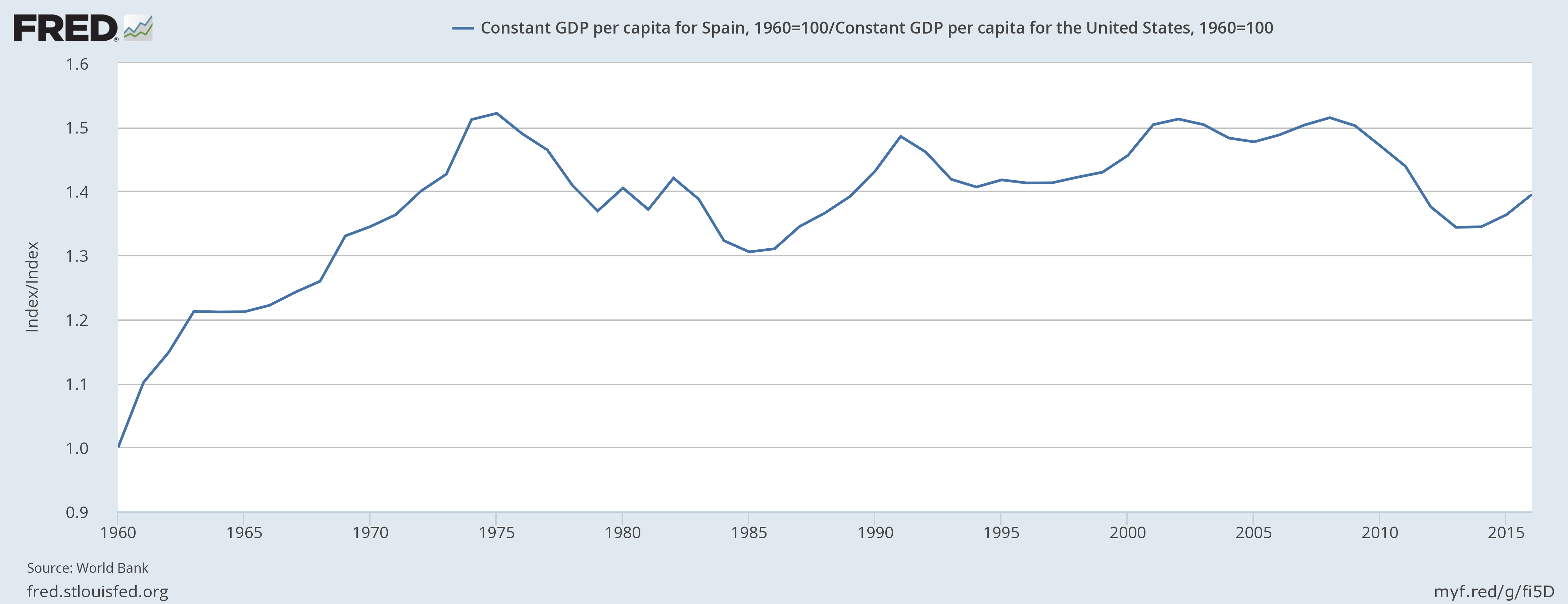October 03, 2017
Roger Cohen showed us yet again that it seems our children aren’t learning when it comes to basic arithmetic skills. He used his NYT column to lecture the people of Catalan on their bad manners in seeking to become independent of Spain over the objections of both the national government and the European Union.
“The Catalan lurch is of its time. Yes, it’s about Catalan self-determination. But it’s also of a piece with the anti-establishment, anti-elitist, disruption-at-any-cost upheavals that have been buffeting and undermining the postwar liberal order in Europe.
“Of course, it’s precisely that order — embodied in the European Union and by the presence of the United States as an offsetting power in Europe — that over the past four decades has ushered Spain, and Catalonia within it, to a degree of prosperity and democratic stability unimaginable at Franco’s death. Spain is a poster child for European integration. So, of course, is Catalonia.
“But we have entered the Age of Amnesia.”
So Cohen says that the European Union and the current world order have ushered in a period of unimaginable prosperity for Catalan and Spain, but the dumb masses just can’t remember how bad things were in the bad old days because of their amnesia. Well, let’s check the numbers.

This graph shows the ratio of an index of Spain’s real per capita GDP to U.S. per capita GDP. In both cases, the index is set so that 1960 is equal to 100. Spain was, of course, a considerably poorer country in 1960 than the U.S., so the ratio of the index is therefore not telling us about levels, but rather relative growth rates.
As can be seen, Spain’s per capita income rises quite rapidly relative to the United States in the 1960s, peaking with a ratio a bit over 1.5 in 1975. (This means that per capita income rose by 50 percent more in Spain than the United States over this period.) The ratio then falls until the mid-1980s, at which point it starts to rise again. It hits another peak in 1990 and then again in 2007, just before the crisis. It then falls sharply in the Great Recession, with a modest recovery putting it at just under 1.4 in the most recent data.
This means that in the four decades since 1975, Spain’s per capita income has actually fallen further behind per capita income in the United States. This is the opposite of what we should expect. The standard story is that poorer countries should be seeing faster growth — catching up — to rich ones. That was the case with Spain prior to 1975, it has not been the case since the country joined the European Union.
Of course, this says nothing about distribution, which almost certainly has gotten more unequal over this period. (The OECD only has data from 2007 to 2014, which shows a modest worsening.)
Anyhow, there is a lot to be said for the freedom and democracy that the people of Catalan and Spain have enjoyed in the last four decades relative to the dictatorship under Franco, but the idea that this has been a period of “unimaginable” prosperity is Cohen’s illusion. Perhaps lectures from Cohen and others like him would carry more weight if they knew what they were talking about.







Comments